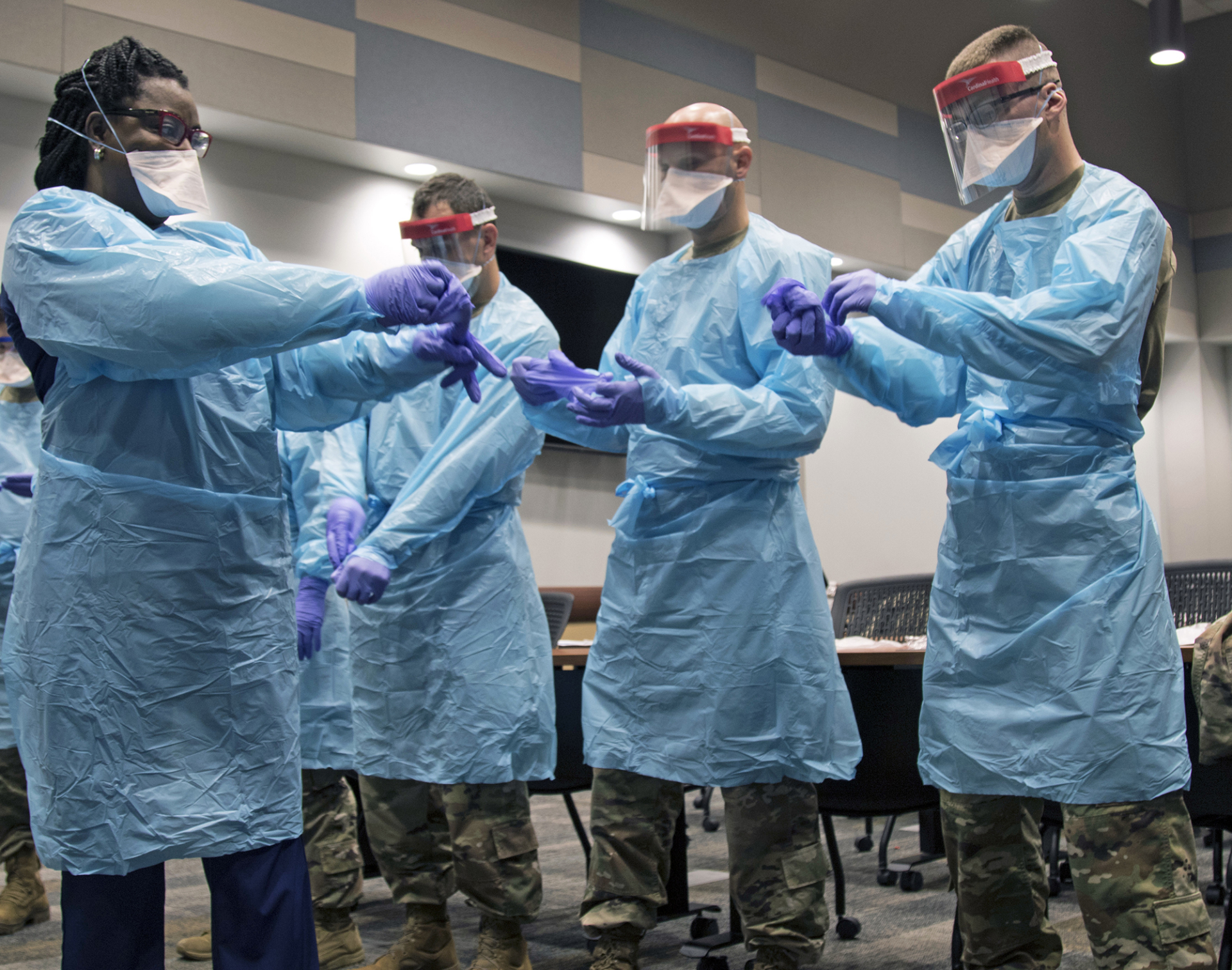On the heels of dire warnings that America is entering the worst week of the COVID-19 pandemic, Arizona health officials Monday reported a surge in COVID-19 cases over the weekend, with 687 new cases bringing the total to 2,456 known infections and 65 deaths.
On Sunday, Surgeon General Jerome Adams on Fox News Sunday warned that this will be the “hardest and saddest week of most Americans’ lives, quite frankly.” President Donald Trump on Saturday also warned of “a lot of death” this week.
Arizona, however, is not among the “hot spots” where spikes are expected this week, according to Dr. Deborah Birx, the White House’s coronavirus response coordinator. On Saturday, she identified the hot spots as New York, Detroit and Louisiana, and said there are growing concerns about Pennsylvania, Colorado and Washington, D.C.
As of Monday, April 6, the Arizona Department of Health Services reported 2,456 cases of COVID-19 in Arizona, and 65 deaths. The department said 32,534 tests for COVID-19 have been completed in public and private labs in Arizona, and 30,246 were negative.
As COVID-19 cases ramp up, Arizona is reporting a steady decline in flu cases. The flu season, which traditionally peaks in early January, has racked up about 31,500 reported cases as of Monday.
“It’s hard to say for sure if fewer people are testing for flu because COVID is circulating or if this is a true decrease in cases,” Jessica Rigler, assistant director for public health preparedness for the Arizona Department of Health Services, told KTAR.
Arizona this year reported 136 flu cases in the last week of March, compared with 823 cases in the same week last year.
“I think people have been much more aware of good hygiene practices, like hand hygiene, disinfecting surfaces and staying more physically distanced from others,” Rigler said. “That can have a dramatic impact on transmission of all diseases, including flu or COVID.”
School stayed open as COVID-19 spread on Navajo reservation
Arizona public schools closed March 16, but a boarding school on the Navajo Nation Reservation stayed open for one more day of classes, and school employees met for at least two additional days, according to the Arizona Republic. Health officials say 354 cases of COVID-19 have been found on the reservation, and leaders are working to contain the outbreak. After Rocky Ridge Boarding School in Kykotsmovi closed, at least four employees and two students fell ill with symptoms similar to COVID-19, the newspaper reported. After the death of one employee, a 55-year-old education technician whose cause of death has not been revealed, Rocky Ridge confirmed at least one case of COVID-19 with the school.
Mohave County confirms its first COVID-19 death
State officials confirmed the first COVID-19 related death in Mohave County on Saturday. The person was older than 65 and had underlying health conditions, according to the county health department. The county has 20 reported cases of COVID-19 as of Monday, with only three cases involving ages 65 or older, according to the ADHS.
Tribal casinos demand payroll help
The federal program designed to help small businesses survive the COVID-19 outbreak may not extend its protections to tribal casino workers, according to Indian Country Today. Under the $2 trillion relief bill passed by Congress, businesses with fewer than 500 employees could apply for small-business loans to continue employee paychecks. The issue for the casinos came into play last week as the Small Business Administration set rules, including: “If the purpose of the business is gambling, such as a pari-mutuel betting racetrack or a gambling casino, the business is not eligible, regardless of the percentage of gross revenue derived from gambling.” The National Indian Gaming Association says the tribal gaming industry employs more than 700,000 and generated $37 billion in 2017.
“We have been fighting for all of our nations during this unprecedented public health crisis,” Ernie Stevens, chairman of the association, told Indian Country Today. “We fought for the $8 billion set-aside for all Indian tribes, and inclusion of tribal governments along with state and local governments. Tribal leaders are demanding fair treatment.”
Story by Hannah Foote, Cronkite News




